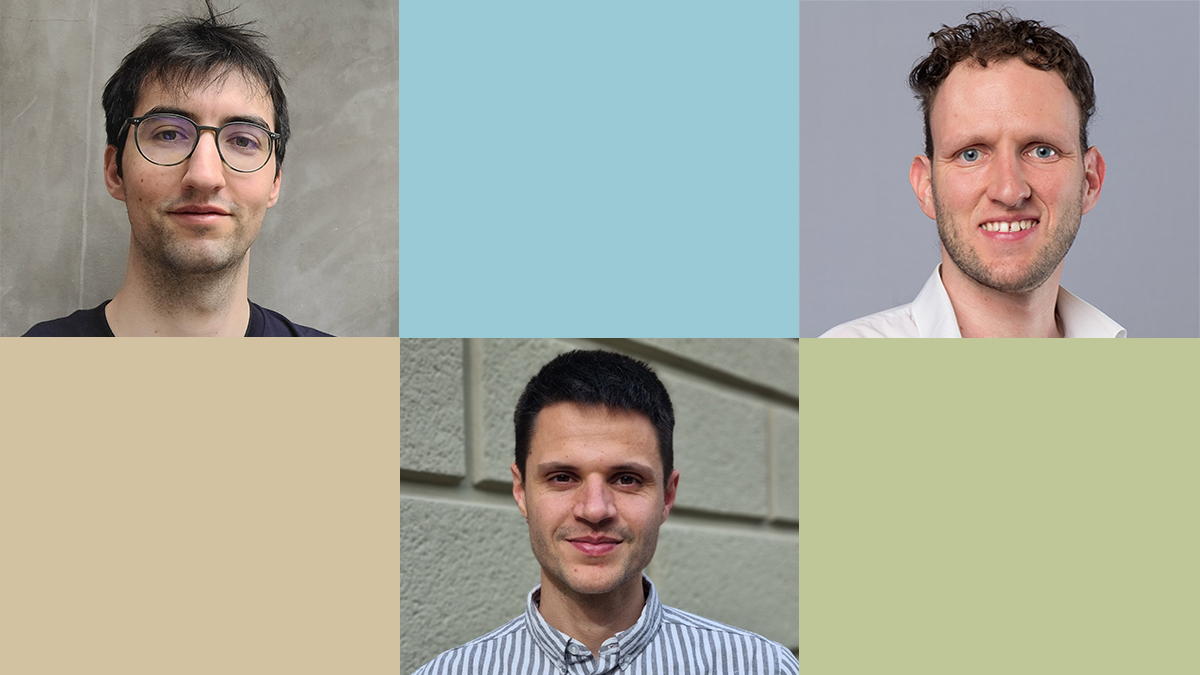ETH Medal - Distinction of Doctoral Thesis
Three doctoral students from the Department of Earth and Planetary Sciences have been awarded the ETH Zurich Silver Medal for their outstanding doctoral theses. Our congratulations go to Nikolaj Dahmen, Julian Rogger and Stefan Strub!
Nikolaj Dahmen
Doctoral thesis title
The Seismicity of Mars Recorded by InSight
Supervisor
Prof. Dr. Domenico Giardini
"Space missions to other planets are rare and costly - NASA’s InSight was just the second mission to successfully place a seismometer on Mars, and the first to record high-quality data confirming that the planet is seismically active. However, most recorded marsquake signals are extremely faint and often masked by background noise caused by wind and daily temperature variations.
This thesis aims to understand and characterise that noise to better separate it from marsquake signals. Using both conventional and machine learning techniques, we were able to uncover many hidden marsquakes and produce cleaner data for improved event characterisation and localisation.
The results significantly expand the marsquake catalogue and help maximise the scientific return of the InSight mission. Overall, InSight has provided a leap forward in our understanding of the planet’s seismicity, revealing tectonic quakes concentrated in a few active regions, meteorite impacts across the planet, thermal cracking events near the lander that repeat like clockwork, and puzzling swarm events that continue to be investigated."
Julian Rogger
Doctoral thesis title
The role of eco-evolutionary vegetation dynamics in Earth's long-term climate
regulation system
Supervisor
Prof. Dr. Taras Gerya
"Since the first plants colonized land more than 400 million years ago, vegetation plays a fundamental role in controlling Earth’s biogeochemical cycles and climate. However, vegetation-mediated climate regulation may fail during abrupt climatic changes, if plants are not capable of adapting fast enough to new environmental conditions.
In my thesis, I studied how a disruption of vegetation systems may have affected Earth’s climate evolution in the geologic past. I focused on some of the most extreme climatic changes in Earth’s history, as during the Permian-Triassic mass extinction around 252 million years ago, or the Paleocene-Eocene Thermal Maximum around 56 million years ago. By developing vegetation models and combining model simulations with geochemical data and plant fossil observations form these periods, I observed that a loss of vegetation-mediated climate regulation may have strongly driven the severity of these past global warming events, sometimes lasting for several millions of years.
A better understanding of the sensitivity of such climate regulation systems
using the geologic past cannot only help to understand Earth’s history,
but also the planet’s response to current climatic changes."
Stefan Strub
Doctoral thesis title
Advancing Global Parameter Estimation of Gravitational Waves Recorded by LISA
Supervisor
Prof. Dr. Domenico Giardini
"Gravitational wave astronomy is entering a new phase with the upcoming launch of the Laser Interferometer Space Antenna (LISA), which will detect low-frequency gravitational waves from sources like white dwarf binaries and massive black hole binaries located at the center of two merging galaxies. These signals are complex and often overlap, making their analysis particularly challenging.
This thesis introduces a hybrid of two established parameter estimation techniques combining maximum likelihood estimation with Bayesian inference to improve signal extraction and parameter uncertainty estimation. By leveraging the strengths of both techniques, the new method offers a more accurate and efficient way to analyze LISA’s data. Applied to simulated data, it successfully extracts overlapping sources and enhances the signal extraction of mixed-source data.
As LISA draws closer to its launch, the work presented will bring us closer to unlocking the mysteries of the universe through the lens of gravitational waves."
